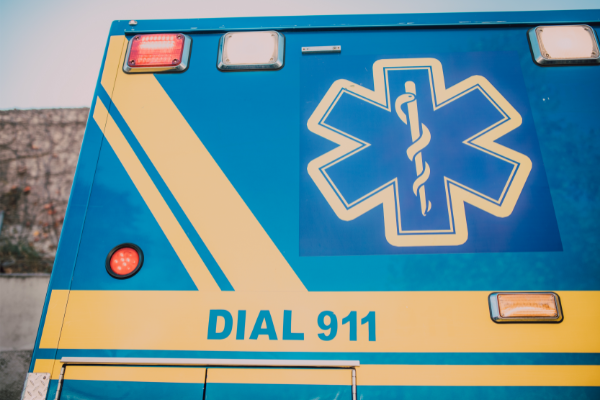COPH receives CDC funding for new infection control resource center
The Centers for Disease Control and Prevention (CDC) recently awarded the USF College of Public Health (COPH) funding to develop an infection control resource center for emergency responders.
The center will be based at the COPH, said its program director Dr. Christine McGuire-Wolfe. Other faculty will include the COPH’s Drs. Anna Torrens Armstrong, Ann Joyce and Kelli Barr as well as Candace Burns from the College of Nursing and the Sunshine Education and Research Center (Sunshine ERC).

“The overall purpose of the project is to develop a multi-modal approach to deliver infection prevention and control (IPC) education to emergency responders. The center will serve as a hub for recruitment, dissemination, referral and subject matter consultation,” explained McGuire-Wolfe, a COPH alumna.
A multi-disciplinary project team will contribute to program planning and evaluation. They will help determine delivery methods based on information collected from a needs assessment conducted with field and administrative representatives from emergency medical services (EMS) and the fire service, McGuire-Wolfe noted. Included in the funding are roles for two doctoral and two MPH students as well as a trainee from the Sunshine ERC who will assist with administrative duties, literature and policy reviews, lab tasks and other roles.
Through a CDC cooperative agreement, the college will partner with CDC over the next five years to create and operate the center. The college will receive nearly $500,000 this year, with the potential for substantial additional funding in each of the next four years.
“This cooperative agreement with the CDC provides an amazing opportunity for the COPH to emerge as a leader in the development of IPC procedures in the emergency response arena,” said McGuire-Wolfe, herself a firefighter/medic and former infection control officer. “Historically, emergency responders have not been included in infection control efforts for traditional health care workers. I have often observed the challenges inherent in applying hospital-based recommendations or IPC practices in the prehospital setting—for example, on the side of the road or in a moving ambulance, under poor lighting, and working in a small, confined space with less-than-optimal ventilation and no running water.”

McGuire-Wolfe noted that patients and bystanders in these settings can be unpredictable, and the safety of the scene can change rapidly. EMS and fire personnel must make rapid decisions regarding patient care with limited information. “Balancing all of these demands while implementing IPC principles is a unique challenge that requires (and deserves) specific education and information for emergency responders,” she said.
With a rising incidence of health care associated infections, specifically in underserved populations, McGuire-Wolfe said the time is right to develop a center devoted to studying infection control practices for emergency responders.
“Addressing gaps in knowledge, attitudes and practices for IPC in the prehospital setting will positively impact patient outcomes and decrease or mitigate the likelihood of exposure to infectious diseases for EMS and fire personnel,” McGuire-Wolfe said. “In addition, the center will create visibility for and an expectation of IPC education, resources and policies specific to emergency responders.”
This project is supported by the Centers for Disease Control and Prevention of the U.S. Department of Health and Human Services (HHS) as part of a financial assistance award totaling $482,034 in the first year with 100 percent funded by CDC/HHS. The contents are those of the author(s) and do not necessarily represent the official views of, nor an endorsement, by CDC/HHS, or the U.S. Government.
Story by Donna Campisano, USF College of Public Health
